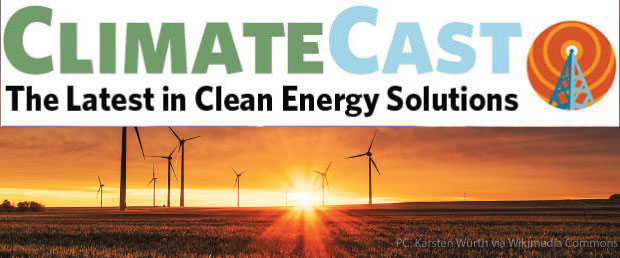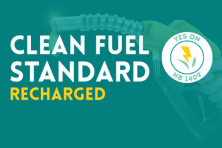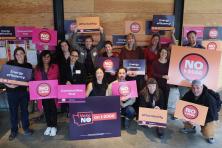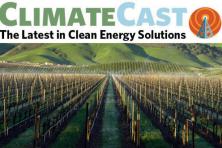There have been several cracks of hope shining through a year into the pandemic, and also in our long-term quest for a safe and stable climate.
Rebecca Solnit captured the spirit and provides a good reminder of the need to take in that bigger picture outlook in the Guardian this week, noting that in our efforts for climate action we can dare to hope, as “we have crossed barriers that seemed insurmountable at the end of the last millennium.” It’s a great read and we appreciated her reflections and optimism in this moment, as the momentum for the clean energy transition builds. She continues:
“That we cannot see all the way to the transformed society we need does not mean it is impossible. We will reach it by not one great leap but a long journey, step by step. If we see how impossible our current reality might have seemed 20 years ago – that solar would be so cheap, that Scotland would get 97% of its electricity from renewables, that fossil fuel corporations would be in freefall – we can trust that we could be moving toward an even more transformed and transformative future, and that it is not a set destination but, for better or worse, what we are making up as we go. Each shift makes more shifts possible. But only if we go actively toward the possibilities rather than passively into the collapse.”
Washington State doubles down on climate action
After a decade of efforts, failures, and perseverance, Washington State passed an economy-wide cap on emissions and put a price on carbon, and saw through a multi-year effort to pass a clean fuel standard while even codifying major environmental justice requirements into state law.
As only the second state outside California to enact a statewide cap, Washington’s efforts may be the most far-reaching in the country with ambitions to drive down pollution from 2018 levels of about 100 million metric tons to net zero emissions by 2050. Previous attempts to tax or otherwise put a price on carbon all ended in failure, but the coalition that helped pass it eventually included a broad group that extended far beyond traditional environmental voices to include big corporate business, tribal government, and unions.
Bye, bye burger lies, hello climate controversy (yet again)
President Biden’s global climate summit made headlines last week with major commitments from countries all over the world to reduce emissions and make moves to transition to clean energy. But congressional Republicans and social media told a different tale: a false story of banning red meat to fight climate change. This marks more of a shift for Republicans—a move away from blatant climate denial to a new roundhouse of culture war. Notably, while “political hand-wringing over food is nothing new,” the world is expected to eat more meat in 2021 than ever before.
The climate fight for buildings is heating up
Efforts to reduce buildings emissions are playing out across the country, with cities taking big strides towards electrification across the building sector. This includes energy efficient home heating technology, like electric heat pumps, gaining traction even in cold weather states like Minnesota. While cities are beginning to set ordinances around requiring new buildings to be powered by electricity, states like Minnesota are updating building codes and adding rebates to incentivize a switch to electricity. All this is predictably being met with strong, well-funded opposition by the gas industry that is “hell-bent” on prolonging our dependence on fossil fuels. Notable local Northwest action includes Multnomah County's recent commitment that all new buildings are built 100% fossil-free and the City of Tacoma's resolution to do the same.





